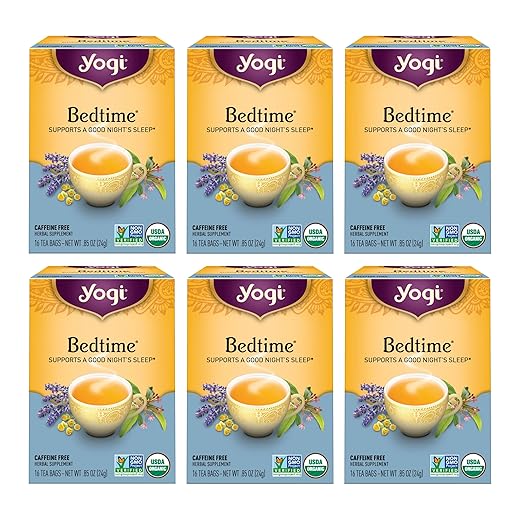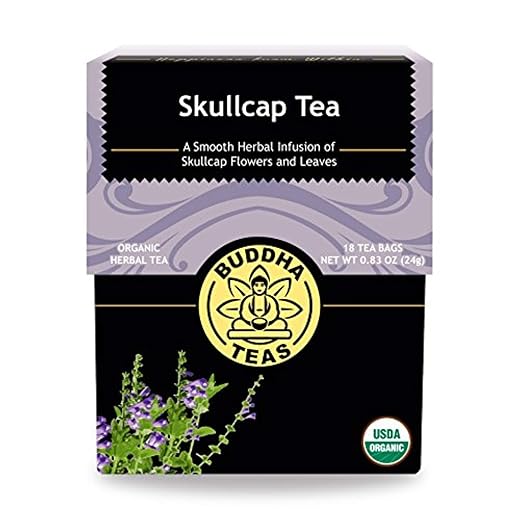
Living with Restless Leg Syndrome (RLS) can be a frustrating and exhausting experience, but many find relief through herbal tea for RLS. The constant urge to move your legs, especially during the night, disrupts rest and prevents you from enjoying a deep, refreshing sleep. While conventional treatments exist, many individuals are increasingly turning to natural remedies—and among them, herbal teas have gained remarkable attention for their calming and therapeutic properties.
In this guide, we explore the connection between herbal tea and RLS, highlight the best natural tea options, and explain how these soothing remedies can pave the way toward better sleep and improved well-being.
Understanding RLS
Restless Leg Syndrome, also known as Willis-Ekbom Disease, is a neurological condition characterized by:
- An overwhelming urge to move the legs
- Unpleasant sensations such as tingling, itching, or crawling
- Symptoms worsening during rest or nighttime
- Relief experienced temporarily through movement
RLS often interferes with sleep quality, leading to fatigue, irritability, and difficulty focusing during the day. Causes may include iron deficiency, nerve dysfunction, genetics, and chronic conditions like diabetes or kidney disease.
Why Choose Herbal Tea for RLS Relief?
Herbal teas have been used for centuries to calm the nervous system, promote relaxation, and improve sleep cycles. Unlike caffeine-rich beverages, these teas are naturally soothing, caffeine-free, and packed with beneficial compounds.
The main benefits of herbal teas for RLS include:
- Muscle relaxation: Natural herbs can ease involuntary leg movements.
- Improved circulation: Certain teas promote better blood flow to the extremities.
- Stress reduction: Anxiety often worsens RLS; calming teas lower stress levels.
- Sleep enhancement: Herbs support melatonin production and restful sleep.
Top Herbal Teas for RLS
1. Chamomile Tea
Chamomile is one of the most well-known sleep-enhancing herbs. Rich in apigenin, it binds to brain receptors, helping reduce anxiety and induce calmness. Drinking chamomile tea before bed can minimize leg discomfort and encourage deep, uninterrupted sleep.
2. Valerian Root Tea
Valerian root has natural sedative properties that target the nervous system. Studies suggest it reduces sleep latency—the time it takes to fall asleep—and alleviates muscle spasms, making it a beneficial choice for RLS sufferers.
3. Lemon Balm Tea
A member of the mint family, lemon balm enhances the activity of GABA receptors in the brain, which regulate stress and nervous system activity. This herbal tea is particularly helpful for individuals with RLS triggered by anxiety or tension.
4. Peppermint Tea
Peppermint has antispasmodic effects, helping relax muscles and soothe discomfort in the legs. Its refreshing aroma and cooling sensation provide an extra layer of relief, making it ideal for nighttime relaxation.
5. Passionflower Tea
Passionflower is known for its ability to increase gamma-aminobutyric acid (GABA) levels, promoting calmness and reducing neural hyperactivity. This tea is highly effective in reducing restlessness and improving overall sleep quality.
6. Skullcap Tea
Often overlooked, skullcap is a potent nervine herb that helps regulate nerve activity and calm spasms. It supports deep relaxation, making it particularly useful for people experiencing severe RLS symptoms.
7. Ginger Tea
Beyond aiding digestion, ginger tea improves circulation and blood flow, which can alleviate leg discomfort associated with RLS. Its warming effect on the body also helps relax muscles before bedtime.







How to Prepare Herbal Tea for Maximum Benefits
To fully enjoy the therapeutic effects of herbal tea for RLS, proper preparation is essential:
- Use fresh, high-quality herbs – whether dried loose leaves or tea bags.
- Boil filtered water and pour it over the herbs.
- Steep for 5–10 minutes, depending on the herb.
- Avoid adding caffeine or excess sugar, which can trigger RLS symptoms.
- Drink your tea 30–45 minutes before bedtime for optimal sleep benefits.
Pro tip: Enhance your tea with a small amount of honey or lavender flowers for extra relaxation.
Lifestyle Tips to Complement Herbal Tea Remedies
While herbal teas are powerful allies, pairing them with lifestyle adjustments can significantly improve RLS management:
- Maintain a regular sleep routine: Going to bed at the same time every night helps train your body for rest.
- Limit caffeine and alcohol intake: Both substances can trigger or worsen RLS symptoms.
- Stay active: Gentle stretching, yoga, or walking throughout the day improves circulation.
- Manage stress: Incorporate meditation, deep breathing, or journaling alongside your evening tea ritual.
- Check iron levels: Since RLS is linked to iron deficiency, ensure adequate intake through diet or supplements.
Precautions When Using Herbal Teas for RLS
Although herbal teas are generally safe, they may interact with medications or underlying conditions. Consider these precautions:
- Consult a healthcare provider before starting herbal remedies, especially if pregnant, breastfeeding, or taking prescribed medications.
- Avoid excessive consumption, as too much valerian or skullcap may cause drowsiness.
- Start with one type of tea at a time to monitor its effect on your body.
Creating a Bedtime Ritual with Herbal Tea
Transforming tea consumption into a bedtime ritual can enhance both its effectiveness and your sense of calm. Dim the lights, sip slowly, and allow yourself to disconnect from technology. Pair your tea with gentle stretches, soft music, or reading to signal to your body that it’s time to rest.
This nightly ritual not only reduces RLS discomfort but also cultivates a sense of peace and mindfulness, leading to restorative sleep.
Final Thoughts on Herbal Tea for Restless Leg Syndrome
Choosing herbal teas as a natural remedy for Restless Leg Syndrome offers a safe, effective, and enjoyable way to regain control over your sleep and well-being. Whether you prefer the floral notes of chamomile, the earthy strength of valerian root, or the refreshing calm of peppermint, these teas bring centuries of healing wisdom into your modern routine.
By incorporating herbal teas and healthy lifestyle practices, you can soothe your restless legs, enhance sleep quality, and embrace a more peaceful night.